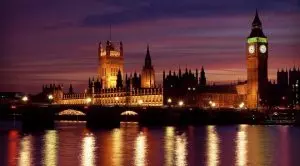 A landmark study has noted that gambling addiction rates in the UK may be 9 times higher than the ones being claimed by the gambling industry. The survey was carried out by the leading gambling charity organisation GambleAware as part of its efforts to encourage more British people to seek professional help and treatment of their compulsive gambling habits and its results have been published only weeks ahead of the Government’s white paper on gambling review.
A landmark study has noted that gambling addiction rates in the UK may be 9 times higher than the ones being claimed by the gambling industry. The survey was carried out by the leading gambling charity organisation GambleAware as part of its efforts to encourage more British people to seek professional help and treatment of their compulsive gambling habits and its results have been published only weeks ahead of the Government’s white paper on gambling review.
In 2021, more than 18,000 adult Brits took part in the research. The study found that about 1.4 million people are being affected by their own gambling, while a further 1.5 million people are considered at risk of developing an addiction to gambling. The results of the survey showed that up to 2.8% of the population scored 8 or higher on the problem gambling severity index – a measure that gambling addiction experts use to estimate harm faced by individual gamblers.
GambleAware revealed that, despite the high problem gambling rates found by the research, less than 8,500 people got actual treatment from the National Gambling Treatment Service (NGTS) in 2021. The gambling charity suggested that for every 1 person who receives professional help for their compulsive gambling, 160 who could benefit from it did not.
According to the landmark study, the problem gambling rate is significantly bigger among men, with 3.7% of them being categorised as gambling addicts, while 7.5% of them are considered to be at risk of developing problem gambling behaviour. In comparison, 2% of women are classified as problem gamblers, while 4% fall into the at-risk category. However, women were more likely to be among the 3.3 million Brits (or about 6% of the country’s population) categorised as “affected others” – a group of people that are being affected by someone else’s gambling.
Very Few People Get Professional Treatment and Support from the NGTS
 Currently, the National Gambling Treatment Service (NGTS) comprises services, including GamCare, the Primary Care Gambling Service and Gordon Moody, which offer confidential professional support and treatment for individuals experiencing problem gambling or gambling-related harm. As revealed by GambleAware, 9 out of 10 people who completed an NGTS treatment service confirmed that their condition improved.
Currently, the National Gambling Treatment Service (NGTS) comprises services, including GamCare, the Primary Care Gambling Service and Gordon Moody, which offer confidential professional support and treatment for individuals experiencing problem gambling or gambling-related harm. As revealed by GambleAware, 9 out of 10 people who completed an NGTS treatment service confirmed that their condition improved.
The bad news is that the actual number of people suffering from gambling-related harm is a lot bigger than the number reported by the UK Gambling Commission (UKGC). YouGov has estimated that 2.8% of British people face gambling harm, which is 9 times higher than the 0.3% reported by a telephone survey of the UKGC. In addition, the figure reported by YouGov is also a lot bigger than the 0.5% found in face-to-face studies performed for the National Health Service (NHS) back in 2016.
According to GambleAware, the significant difference in the aforementioned figures could be due to the methodology used by the researchers, as people who take part in online research may be disproportionately experiencing problems associated with their gambling habits. The gambling charity organisation also noted that while the figures reported by YouGov were likely to be at the upper bounds of the actual gambling addiction rate, the landmark research had been controlled so that no data was manipulated. The largest gambling charity in the UK also suggested that the true figure may be underestimated by other surveys.
- Author


